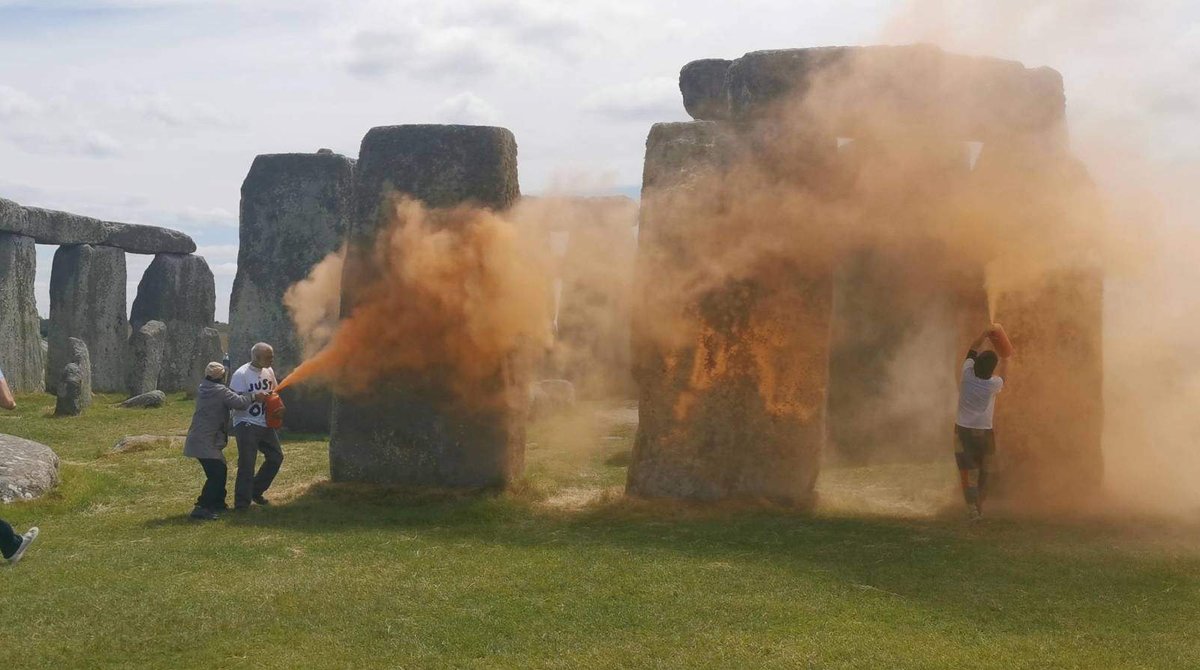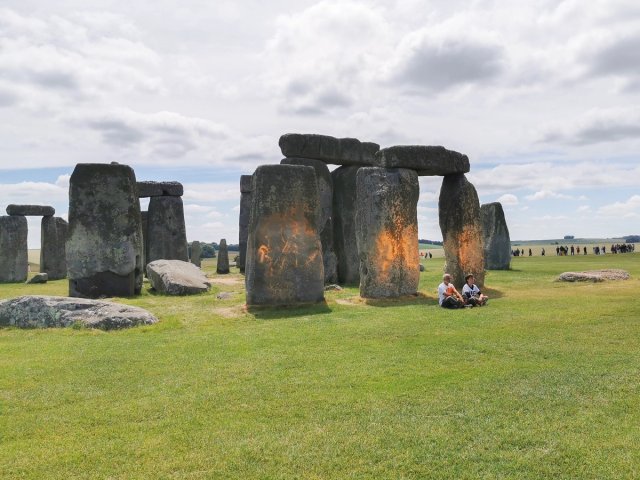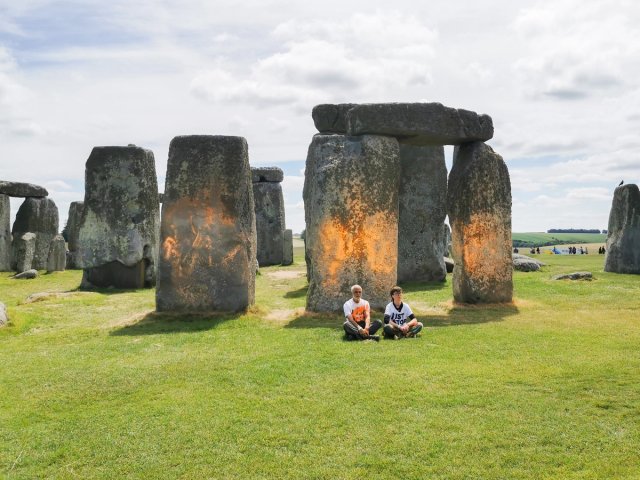Stonehenge is the latest cultural landmark to be targeted by Just Stop Oil environmental activists, who today sprayed the ancient site in Wiltshire, UK, with orange powder paint.
A spokesperson for English Heritage, which oversees the monument, tells The Art Newspaper: “Orange powdered paint has been thrown at a number of the stones at Stonehenge. Obviously, this is extremely upsetting and our curators are investigating the extent of the damage. Stonehenge remains open to the public.”
In a statement, Wiltshire police said: “We have arrested two people following an incident at Stonehenge this afternoon. At around noon, we responded to a report that orange paint had been sprayed on some of the stones by two suspects. Officers attended the scene and arrested two people on suspicion of damaging the ancient monument. Our inquiries are ongoing.” According to the Guardian, members of the public attempted to stop the incident.
Just Stop Oil named both activists in a statement (Niamh Lynch, 21, and Rajan Naidu, 73). Naidu says: “The orange cornflour we used to create an eye-catching spectacle will soon wash away with the rain, but the urgent need for effective government action to mitigate the catastrophic consequences of the climate and ecological crisis will not.”
Just Stop Oil adds that it is “demanding that the incoming UK government commit to working with other governments to agree an equitable plan to end the extraction and burning of oil, gas and coal by 2030”. The UK prime minister Rishi Sunak condemned the incident however, telling The Guardian: “This is a disgraceful act of vandalism to one of the UK’s and the world’s oldest and most important monuments.”
Previously, Just Stop Oil protests have targeted the Magna Carta at the British Library in London and works of art including Vincent van Gogh’s Sunflowers(1888) at the capital’s National Gallery.
UPDATE (20 June): The orange powder paint sprayed onto part of Stonehenge has since been removed. The English Heritage chief executive, Nick Merriman, told BBC Radio 4 that there appeared to be "no visible damage" to the 5,000-year-old landmark after experts cleaned the site which will be open for Summer Solstice celebrations from 19:00 on 20 June.






